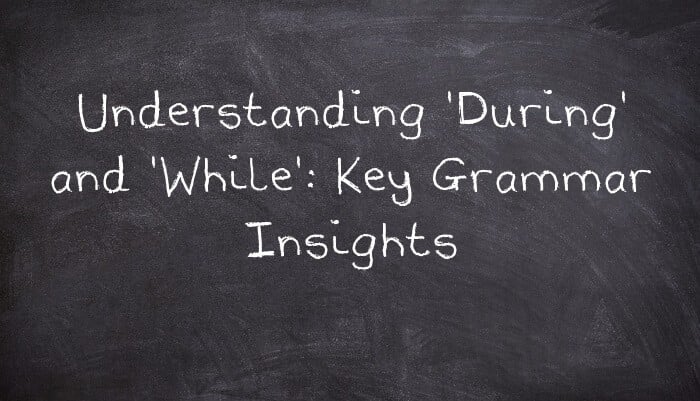When it comes to using the English language effectively, understanding the distinction between similar words is crucial. In this article, we will explore the difference between "during" and "while," two commonly used words that often cause confusion due to their similar meanings. By grasping their unique grammatical functions, you can enhance your writing skills and express yourself with clarity and precision.
During - A Preposition
During functions as a preposition, which means it is typically followed by a noun phrase. In sentences, "during" is used to express a specific time frame or an event occurring within a certain period. For example, consider the sentence, "I met her during the summer holidays." Here, "during" is followed by the noun phrase "the summer holidays," indicating the time when the meeting took place.
While - A Conjunction
While serves as a conjunction, and it is usually followed by a verb phrase. Unlike "during," which focuses on time, "while" emphasises a simultaneous occurrence of two actions. To illustrate this, let's examine the sentence, "I met her while I was on holiday in Italy." In this case, "while" is followed by the verb phrase "I was on holiday in Italy," indicating that the meeting happened at the same time as the speaker being on vacation.
Key Differences
To summarise, the main distinction lies in their grammatical functions. "During" functions as a preposition and is followed by a noun phrase, while "while" operates as a conjunction and is followed by a verb phrase. "During" focuses on a specific time frame, whereas "while" denotes a simultaneous action.
Practical Examples
Here are a few additional examples to solidify your understanding:
- During the movie, my phone rang. (time frame)
- While I was cooking, the doorbell rang. (simultaneous actions)
- He fell asleep during the lecture. (time frame)
- While she studied for her exam, her friends watched a movie. (simultaneous actions)
By comprehending the distinction between "during" and "while," you can use these words more effectively in your writing. Remember that "during" is followed by a noun phrase and focuses on a specific time frame, and "while" is followed by a verb phrase and denotes simultaneous actions. Enhancing your grasp of these nuances will help you express your thoughts more accurately and clearly.
